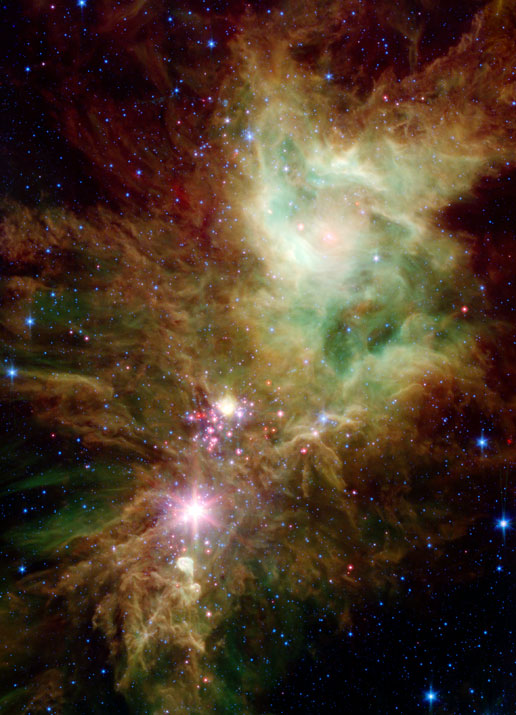|



|
|
Author
Index
H |
Elizabeth
Hand |
|
Title
Index
G |
Glimmering |
|
|
|
|
| Year |
1997 |
| Publisher |
Voyager
(Harper Collins) |
| ISBN |
0006480276 |
|
|
|
Synopsis
|
The
world gives birth
to a new
millennium ...
It is 1999.
The Last Days, say
some; The First,
claim
others. The
climate is clearly
warming, the
evening skies are
awash in dreamy,
multi-coloured
lights, and
underground cults
are preparing for
the frenzy of all
frenzies - The
Night of the
Thousand Years.
Still-born or
new-born?
Jack Finnegan, the
world's last
literary
publisher, is
dying of AIDS;
Trip Marlowe, VR
rock star, is
dying from too
many
mind-expanding
excursions
courtesy of IZE;
and Leonard Thrope
is coming to town
with his wonderful
life-restoring
elixir.
Who
cares? It's
time to party.
Trippy sex, new
age revivals and
the hottest
hallucinogens the
imagination can
buy - it must be
the time of the
Glimmering. |
|
|
|
Review
|
'A
potent
socio-erotic story
for our looming
Millennium ...
Hand's
high-resolution
narrative never
falters.'
William Gibson |
|
|
_______________________________________________________
 |
|
|
Credit:
NASA
|
|
Stellar
Snowflake
Cluster
Newborn
stars,
hidden
behind
thick
dust, are
revealed
in this
image of a
section of
the
Christmas
Tree
Cluster
from
NASA's
Spitzer
Space
Telescope.
The newly
revealed
infant
stars
appear as
pink and
red specks
toward the
center and
appear to
have
formed in
regularly
spaced
intervals
along
linear
structures
in a
configuration
that
resembles
the spokes
of a wheel
or the
pattern of
a
snowflake.
Hence,
astronomers
have
nicknamed
this the
"Snowflake
Cluster."
Star-forming
clouds
like this
one are
dynamic
and
evolving
structures.
Since the
stars
trace the
straight
line
pattern of
spokes of
a wheel,
scientists
believe
that these
are
newborn
stars, or
"protostars."
At a mere
100,000
years old,
these
infant
structures
have yet
to
"crawl"
away from
their
location
of birth.
Over time,
the
natural
drifting
motions of
each star
will break
this
order, and
the
snowflake
design
will be no
more.
While most
of the
visible-light
stars that
give the
Christmas
Tree
Cluster
its name
and
triangular
shape do
not shine
brightly
in
Spitzer's
infrared
eyes, all
of the
stars
forming
from this
dusty
cloud are
considered
part of
the
cluster.
Like a
dusty
cosmic
finger
pointing
up to the
newborn
clusters,
Spitzer
also
illuminates
the
optically
dark and
dense Cone
Nebula,
the tip of
which can
be seen
towards
the bottom
left
corner of
the image |
|
NASA
Image of
the day
archive |
|
______________________________________________________
|
|



|

